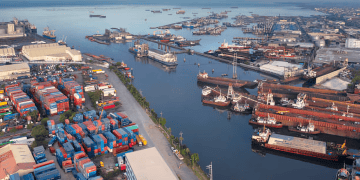The Philippine government is inviting testing, inspection, and certification companies to apply for conducting pre-border technical verification (PTV) of imported goods. This move is in line with Administrative Order No. 23, which directs the Bureau of Customs (BOC) to implement PTV and cross-border electronic invoicing (CEI) systems.
The application process, including qualification criteria and required documents, is detailed on the Department of Finance’s official website. Interested parties have until February 15, 2025, to submit their proposals. Applications will be reviewed by the Committee on Pre-border Technical Verification and Cross-border Electronic Invoicing (CPTVCEI), which will decide within 30 working days of receiving complete submissions.
Eligible companies must demonstrate their ability to conduct PTV effectively, including testing and inspecting imported goods to verify specifications, weight, volume, and country of origin. This initiative ensures imports meet safety and quality standards, aligning with the World Trade Organization Facilitation Agreement and existing laws.
Once accredited, companies will verify export documents within three working days of receiving service fees and exporter notifications. In cases involving health or environmental concerns, companies may also need to conduct specific tests as directed by regulatory agencies. After inspections, they will issue either a Certificate of Conformity or a Discrepancy Report.
Accredited companies are required to submit a capacity-building plan to the BOC and conduct educational campaigns for stakeholders within a month of the program’s launch.
Administrative Order 23 seeks to expedite the inspection process for imports entering the Philippines, enhancing national security, consumer protection, and environmental safety. A joint administrative order (JAO), currently in draft form, will provide detailed guidelines for implementing these measures.
The PTV requirement applies to containerized agricultural goods, non-agricultural products with safety considerations, and other items prone to misdeclaration. Air shipments are exempt from PTV but must comply with CEI requirements. Goods cleared through PTV may qualify for expedited port withdrawal if all legal conditions are satisfied.
Non-compliance with PTV or CEI requirements could result in penalties, including fines or revocation of importer accreditation for repeated violations. Accredited companies may charge fixed fees for verifications, while the BOC will collect service fees for overseeing the PTV and CEI systems.
This initiative underscores the Philippine government’s commitment to improving import regulations, ensuring product safety, and aligning with global trade standards.
Your source for supply chain report news updates: The Supply Chain Report. For international trade insights and tools, head to ADAMftd.com.
#PhilippinesTrade #BOCInitiative #ImportRegulations #PreBorderVerification #CrossBorderEInvoicing #PTVImplementation #PhilippineCustoms #GlobalTradeStandards #ProductSafety #CustomsEfficiency
















